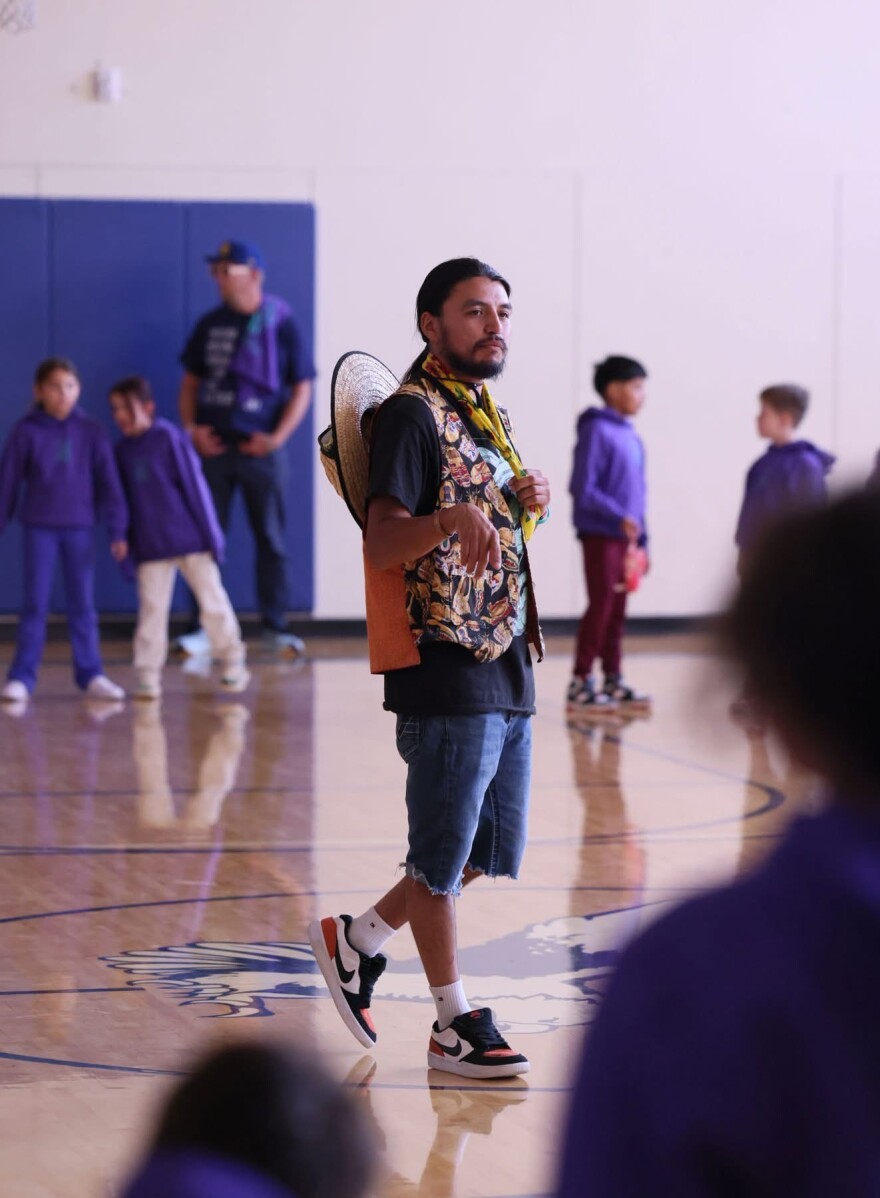Native American teens and young adults were more than twice as likely to take their own lives in the last decade than their white counterparts, according to CDC data.
The Spokane Tribe of Indians is working to bring those numbers down. Part of that effort is reconnecting Indigenous people with their cultures.
On Sept. 10, Tribal officials worked with the nonprofit Spokane Tribal Network and the Wellpinit School District to put on a Walk for Life in honor of a student who took their own life in the last year.
“It was a good time, just remembering the ones that we've lost and getting the kids together and letting it be an outlet for them to talk about their friends or their family members,” Marlene Orr, the Wellpinit School District’s Native Youth Community Project Coordinator, said. “[It was] almost a celebration of their lives.”
Students and community members walked from the school to the powwow grounds, where attendees could participate in drumming or play stick game and celebrate the lives of those they’ve lost to suicide.
“Our kids, they don't voice how they feel—that's just kind of how we are as Native American people,” Orr told SPR. “We just, you know, don't voice our emotions very often, but you can see it in their faces how it helps them.”

Orr, who is an enrolled member of the Spokane Tribe, said there was a social taboo around the subject of mental health while she was growing up, but she’s seeing a shift.
“My grandparents and my parents, we don't talk about our emotions, really. We just kind of let them go. But lately with the younger generations, like the kids now, they're more vocal about how they feel and how to address their emotions,” she said. “It's the people who are my age that are kind of sometimes struggling with how to help them direct how to deal with their emotions, because if we didn't deal with them, then how are we going to help them deal with them?”
Rachel Ferguson, the Tribe’s suicide prevention coordinator and an enrolled member, said she’s also encouraged by the progress in reducing the shame around having mental health conversations.
“I feel like, especially in the Native community, it has improved, but there's still a lot of stigma. Even saying the word ‘suicide’ is prohibited in some spaces,” Ferguson said. “And so there's still definitely a lot of growth to take place in destigmatizing mental health.”
But when it comes to preventing suicides in the meantime, Ferguson points to studies that show increasing connection to culture is an effective method for suicide prevention among Indigenous peoples.
Native American boarding schools in the United States separated many Native youth from their families and prevented many from learning their traditional languages and cultural practices.
According to a 2024 report from the U.S. Department of the Interior, which facilitated the boarding school system, at least 973 American Indian, Alaska Native, and Native Hawaiian children died while attending schools in the system—though the report acknowledges that’s likely an undercount.
"The federal government—facilitated by the Department I lead—took deliberate and strategic actions through federal Indian boarding school policies to isolate children from their families, deny them their identities, and steal from them the languages, cultures and connections that are foundational to Native people," then-Interior Secretary Deb Haaland said in a statement.
“When you take people out of their community and away from their families and don't allow them to practice their culture, it creates extreme trauma,” said Ferguson, whose own father attended the St. Mary’s Mission boarding school in Omak.

Now Ferguson, alongside Will Dennison and language teacher Louis Bates, helps organize events for members to learn Salish, make traditional foods, or connect over their shared struggles.
“Getting back what was stolen from us, you know, was refused and denied—it builds your worth as just a Native person,” she told SPR News. “We're saying ‘Our culture is valuable. Our language is valuable, and it's a very important part of our identity.’ And restoring that identity is an important part of our healing.”
Among the healing and suicide prevention efforts are a general peer support group, as well as a group for two-spirit and LGBTQ+ individuals. “Two-spirit” is a term used in many Indigenous communities to describe those who embody diverse sexualities, genders and gender expressions.
A 2023 survey by The Trevor Project, a suicide prevention and crisis intervention nonprofit organization for LGBTQ+ young people, shows 54% of Native LGBTQ+ youth reported seriously considering suicide in the past year, compared to 41% of all LGBTQ+ youth surveyed.
The two-spirit and LGBTQ+ group has been gaining attendance, Ferguson said, but attitudes of others on and off the reservation make some people hesitant to come.
“There's a concern of safety just because of our political climate right now,” she said. “And then the challenge on the reservation is also that everybody knows everybody. It's just the stigma, the two-spirit stigma.”
The suicide prevention efforts by the Spokane Tribe and Wellpinit School District extend beyond September. The Tribe will partner with WSD later this November for a three-day training, The Good Road of Life. The training is meant to continue their efforts to weave cultural reconnection into behavioral health for kids in the district.
“We have a logo for our suicide program. It's in Salish, but it means that we know our lives are priceless,” Ferguson said. “And so, I guess that's what we are trying to build. We're trying to build a community where people just value themselves and each other.”


